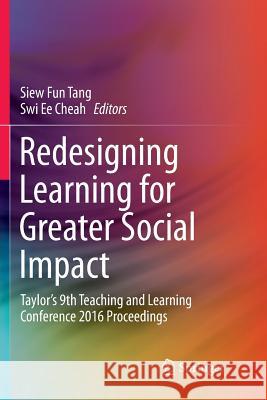Redesigning Learning for Greater Social Impact: Taylor's 9th Teaching and Learning Conference 2016 Proceedings » książka
topmenu
Redesigning Learning for Greater Social Impact: Taylor's 9th Teaching and Learning Conference 2016 Proceedings
ISBN-13: 9789811350818 / Angielski / Miękka / 2019 / 401 str.
Redesigning Learning for Greater Social Impact: Taylor's 9th Teaching and Learning Conference 2016 Proceedings
ISBN-13: 9789811350818 / Angielski / Miękka / 2019 / 401 str.
cena 924,16
(netto: 880,15 VAT: 5%)
Najniższa cena z 30 dni: 771,08
(netto: 880,15 VAT: 5%)
Najniższa cena z 30 dni: 771,08
Termin realizacji zamówienia:
ok. 30 dni roboczych.
ok. 30 dni roboczych.
Darmowa dostawa!
Kategorie:
Kategorie BISAC:
Wydawca:
Springer
Język:
Angielski
ISBN-13:
9789811350818
Rok wydania:
2019
Wydanie:
Softcover Repri
Ilość stron:
401
Waga:
0.57 kg
Wymiary:
23.39 x 15.6 x 2.13
Oprawa:
Miękka
Wolumenów:
01











